Interview with Susan L. Krinsky, Former Associate Dean of Admissions at Tulane University Law School
Published October 2009
Top-law-schools.com appreciates Susan L. Krinsky, Former Associate Dean of Admissions at Tulane University Law School, for kindly taking the time to answer the following questions.
 The Admissions Process
The Admissions Process
TLS: What does the admissions process consist of, and how is an application rated?
At Tulane, a complete application file includes the usual items—a completed application form, with appropriate explanations, resume, and personal statement; application fee; Law School Report of an LSAT score and undergraduate transcripts; any additional transcripts not included in the Law School Report. Although we do not require letters of recommendation, they can be very helpful, and virtually all of our candidates submit at least two letters. An optional question on our application form asks candidates to describe economic, cultural or social factors that have presented obstacles and/or to include a statement of how the candidate would add diversity to our student body. In addition, we encourage applicants to submit other information that would assist us in evaluating them.
After a file becomes complete, we begin the review process by reading the entire file. Some applications are accepted immediately, some are denied immediately, and a large number go on to be read by two other reviewers.
TLS: Realistically speaking, how large a part of the admissions process are factors other than a candidate’s GPA and LSAT scores? Of these non-numerical factors, are there any that particularly pique your interest (military service, corporate work experience, Teach for America, etc.)? Can you give examples of what you see as excellent, good, and mediocre non-numerical attributes or accomplishments?
It depends. Year after year, we encounter applications where the GPA and LSAT are not particularly noteworthy within our pool, but where some other aspect of the application is persuasive enough to result in an offer of admission. That aspect could be work experience, or volunteer/service activities, some kind of personal experience, or even an academic experience of some kind, and the common thread is almost always the way the candidate discusses that factor in his or her personal statement. It is critical that the candidate convey the relevance and significance of whatever the factor may be.
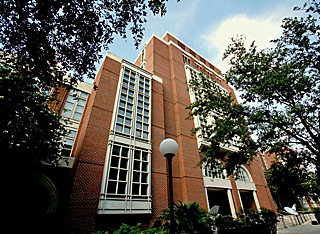 TLS: Do you have any advice for students preparing to apply to law school? What about for admitted students to prepare for their first year at Tulane?
TLS: Do you have any advice for students preparing to apply to law school? What about for admitted students to prepare for their first year at Tulane?
I can’t over-emphasize the importance of preparation in response to both of these questions. With respect to the application process—preparation in the form of having researched the schools to which applications are being submitted, tailoring the personal statement or essay to each school, having thought about why law school is the next step, having met with and/or corresponded with writers of recommendations.
With respect to the first year of law school at Tulane or anywhere else, the most successful students are the ones who are able to hit the ground running because all of the logistical issues are taken care of. This includes having made advance arrangements to live in a stable situation and doing some advance planning with respect to daily life (e.g., knowing where meals are coming from and where the grocery school is). Another trait of successful students is a willingness to re-evaluate study methods and being open-minded enough to re-think everything. In a way, it’s a combination of confidence and humility. You have to have the confidence to believe that you can succeed, but at the same time, you have to be willing to read and listen in ways that you haven’t in the past.
TLS: What do you consider to be the most important factors an admitted applicant should examine when choosing which law school to attend?
It is important to have a level of comfort with the school, to feel some “good chemistry.” While the decision can be somewhat intuitive, it’s also important to make sure that your interests are covered. So if you feel very strongly that you will want to take environmental law courses, make sure the school (a) has some, and (b) appears to have enough of a commitment to the field that if a faculty member leaves, the school will still offer those courses. If you just don’t like urban environments, then it might not be a good idea to be in one for three years. If it’s important to you to be in a supportive environment and to have relatively easy access to faculty and administrators, find out whether students currently at the law school find those factors to be present.
Make a list of the things that are important to you, and make a chart to see which of those things are present at the schools to which you’ve been admitted. You might find, through this exercise, that some things are more or less important than you thought they were. Certainly, a visit to a school after you’ve been admitted can be very important.
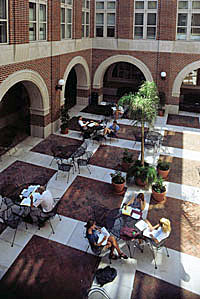 TLS: How does Tulane view multiple LSAT scores?
TLS: How does Tulane view multiple LSAT scores?
Naturally, we see all of the scores, but we rely on the candidate to explain which score is more representative and why. Not surprisingly, candidates want us to look at the higher or highest score, but without an explanation, we are more likely to look at the average score than the higher score in making the admission decision.
TLS: In what circumstances should an applicant include an addendum to explain his or her low GPA or LSAT score? What should this addendum include?
Anytime a candidate has something in his or her application that he or she feels is not representative of the kind of work he or she is capable of doing, an explanation is appropriate and sometimes even necessary. An aberrational semester or year, for example, should be explained. With respect to the LSAT score, if the score is lower than you think it should be, by all means, explain it (if you have an explanation). Obviously, this is a lot more persuasive when there’s a second score that is higher. But we all understand that there are situations in which the LSAT really does not reflect a candidate’s abilities. It’s hard for us to know which situations those are without some kind of explanation.
TLS: Tulane received a substantial boost in the amount of applications this previous admissions cycle compared to earlier years. What is the reason for this spike in applications? Do you expect the number of applications to arrive by a similar amount this upcoming cycle?
I think there are several things going on. First, our applications have been artificially low since Hurricane Katrina, when we took a 33% hit in application volume, so I think we’re gradually getting back to our natural level. For some candidates, it has taken some time for them to feel comfortable enough to seriously consider Tulane. I am continually surprised by the number of people in the US and abroad who are under the misapprehension that Tulane is not in operation or is a lesser place than it was before, and the number of people who think that New Orleans is still under water. As more and more people have gotten involved in the recovery of New Orleans, there is more and more of an understanding that (a) New Orleans and Tulane are fully operational, (b) this is a very exciting place to be, (c) one can make a difference here practically just by showing up, and (d) New Orleans and Tulane are even BETTER than they were before, in many ways.
Of course, the national economy has also contributed to our increase in applications (as it has contributed to a national increase), but the fact that the cost of living in New Orleans is comparatively reasonable has contributed to our larger-than-average increase in applications.
As for the coming year, I wouldn’t be surprised to experience another increase.
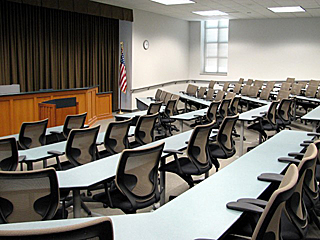 Financial Aid
Financial Aid
TLS: What percentage of students receives scholarships of any kind and what methodology determines to whom scholarships are awarded?
In a typical year, at least 60% of incoming students receive merit-based scholarships. These are awarded on the basis of the information in the admissions application; there is no separate application for scholarships. Most of our scholarships are awarded on the basis of LSAT and GPA combinations, but some have other criteria, and we do reserve some funds for small need-based scholarships.
TLS: Will the current state of the economy affect the distribution of merit scholarships?
No, I do not have any reason to think our merit-scholarship awards will change.
Applying Early
TLS: Do applicants, especially those with numbers that fall below Tulane’s medians, increase their chances of admission by applying early? Is there anything that an applicant whose numbers are below your medians can do that would increase their chances of acceptance?
Applying early can be beneficial in at least two ways. First, the arithmetic and psychology of the process are such that we can be somewhat more generous at the beginning of the season when we have, say, 800 offers to make, than we can later in the season when we may have only 400 or 200 or 100 offers left to make. Second, if there are “holes” in an application that lead to questions when we read the application, we have the luxury of asking for more information and the time to receive and consider additional information. Third, early applications give the impression, perhaps counter-intuitively, that the candidate has been thinking about applying for some time, has given it some thought, has thought about applying early, doesn’t procrastinate, has prepared, all those good things.
Personal Statements
TLS: Do you have any general advice regarding personal statements for applicants who want to maximize their chances?
Tailor the personal statement to the individual school. Obviously, read the question and respond to it directly. Make it clear to the reader that you know to which school you’re applying; and make it clear that you know what makes you a good match for that school. All admission officers want to admit students who want to attend their school, so put yourself in that category. Avoid gimmicks, and be yourself. It’s called a “personal” statement for a reason—I want to hear about you, not about world peace, not about my own school. By the time I finish reading the statement, I should have some sense of who you are and why I would want you to enroll at Tulane. Part of what makes a good personal statement is content, but tone plays an important role, too.
TLS: Could an applicant significantly improve his or her chances of admission by drafting a personal statement specifically for Tulane, as opposed to a general personal statement that briefly mentions Tulane, if at all?
Yes (see above). I don’t mean to suggest that a personal statement should discuss Tulane extensively. What I mean is that the personal statement should respond specifically to the questions we ask on our application form, and that it should convey to us how and why the candidate is interested in a school like Tulane (with our particular strengths).
TLS: Do you come across personal statements that actually hurt the applicant’s chances? If so, what are some traits of these statements? Are there any clichés or pitfalls an applicant should avoid? How often do you find statements that really stick out from the crowd and what do these statements consist of?
I’m not wild about personal statements that start out with a quotation. I’m frustrated by personal statements that start out telling a story (“As I stood in the emergency room with my best friend…..”), then shift to the relevance of the story to the candidate’s motivation, and never close the loop or tell the end of the story. Certainly, personal statements that are poorly written or that are just sloppy or that have grammatical or spelling errors do not help the candidate. Nor do personal statements that convey arrogance or other unpleasant personal traits. I would say that, at most, 1% of personal statements stand out from the crowd as exceptional in a good way—they tell an interesting and compelling story, or they convey the candidate’s experiences and their relationship to the desire to go to law school very effectively, and I not only want to admit the student, but I want to make a copy of the personal statement to use as an example—that’s my definition of exceptional. Of course, many more personal statements than that are solid and helpful to the applicant’s candidacy.
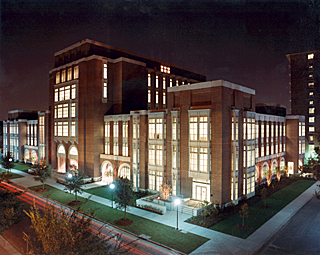 Letters of Recommendation
Letters of Recommendation
TLS: Applicants often have difficulty choosing and approaching potential recommenders. Can you offer some general advice regarding letters of recommendation?
It’s important to think about this early enough to have time to meet with recommenders. The purpose of such a meeting is to talk with your potential recommenders about your interest in law school and your strengths as a law school candidate, to provide recommenders with a copy of your resume, and to make sure they know enough about you to write a persuasive letter of recommendation. You also want to give potential recommenders an “out” so that if they don’t feel that they can write a strong letter for you, they will let you know and not write a so-so letter just to avoid saying no to your request.
Ideally, this won’t even be necessary, because you will have built strong relationships with faculty members and employers, and both you and they will feel confident about writing a strong recommendation.
The strongest letters are the ones that make clear that the recommender knows the candidate well, can speak to the candidate’s strengths and weaknesses, and thinks very highly of the candidate, backed up by specific examples. Examples and even comparative statements can be very important to a persuasive letter.
Academic letters (that is, letters from faculty members) are important because faculty members have information that is relevant to a candidate’s ability to do the work required in law school. As a general rule of thumb, at least one letter should be from an academic reference. But letters from employers can also provide useful supplemental information about attention to detail, motivation, and other skills and characteristics relevant to success in law school.
TLS: Does the admissions committee come across letters of recommendation that actually hurt an applicant’s chances of admission? If so, what sort of letter should be avoided? How often do you find letters that really stick out from the crowd and what do these letters consist of?
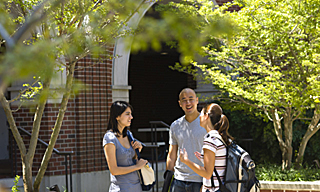 Rarely do we receive letters that actually hurt an applicant’s chances for admission, though we do see them a few times a year. These are the letters in which the recommender says something like, “I don’t know why Mr. Jones asked me to write a letter of recommendation for him, since he did not perform particularly well in my class”. The detrimental letters tend to be ones that probably could have been avoided had the applicant given the recommender an “out”.
Rarely do we receive letters that actually hurt an applicant’s chances for admission, though we do see them a few times a year. These are the letters in which the recommender says something like, “I don’t know why Mr. Jones asked me to write a letter of recommendation for him, since he did not perform particularly well in my class”. The detrimental letters tend to be ones that probably could have been avoided had the applicant given the recommender an “out”.
But many letters, unfortunately, are not particularly helpful. The letters that aren’t helpful (even if they’re not affirmatively detrimental) are the ones written by recommenders who appear not to know the applicant very well (or at all), or that say the same thing about every applicant. Falling into this category are letters from political figures who simply state that they are writing on behalf of a constituent, or from individuals who know the candidate’s parents, but not the candidate, or from others who might be within six degrees of separation but who otherwise can’t tell us anything about the candidate that is relevant to success in law school.
As for letters that “stick out from the crowd” (in a positive way), I would estimate that about 5% of the application files I read include a letter that makes me stop and take another look at the applicant. These letters make clear that the writer knows the applicant well and knows her strengths. They almost always offer examples of those strengths and of other personal traits. Sometimes these letters compare the applicant to others who have gone on to be successful in law school. Often, they tell me something about the applicant that makes me stop and take a closer look, or they put things in perspective in a way that’s very persuasive.
Undergraduate & Graduate Education
TLS: How much will an upward grade trend positively influence the likelihood of admission?
Again, it depends. Certainly, we’d rather see a positive grade trend than a negative one. The effect will depend on the steepness of the curve (going from a 3.2 to a 3.3 isn’t going to make that much of a difference; going from a 3.2 to a 3.7, or a 2.9 to a 3.5, will be more impressive). And it also depends what else is in the file. An upward grade trend in the absence of other positive factors won’t have as much of an effect as an upward grade trend along with, for example, a compelling personal statement and some interesting work experience or community service activity.
TLS: Do you consider the relative prestige or rank of an applicant’s undergraduate institution? What about the relative difficulty of an applicant’s undergraduate major?
We consider these factors, as we consider all factors, but it’s hard to say to what extent the admission decision will be affected. It’s rarely the case that we have an “other things being equal” situation where the only difference between two applications is that one candidate has attended a “higher ranking” undergraduate institution. However, we do look at the rigor of the institution as measured by the average GPA of students who applied to law school from that institution. So if I’m looking at two candidates, one of whom performed better than 60% of the law school applicants from her undergraduate school, and the other of whom performed better than 90% of the law school applicants from her undergraduate school, I am less interested in what the GPA was than where the applicant ranked vis a vis her peers.
Undergraduate majors are a harder case. I won’t necessarily know what a “hard” major is at any particular school. Certainly, the conventional wisdom is that engineering and hard sciences are more difficult than other majors. But this is often where letters of recommendation come in—if a recommender gives me a good understanding of what it takes to do well in a particular major, I have some basis for taking that into account.
TLS: How do you view graduate degrees and do you take graduate GPA into consideration?
Like other subjective factors, the fact that an applicant has pursued a graduate degree is taken into account. Graduate GPAs aren’t particularly useful in discriminating among candidates because graduate GPAs tend to be clustered at the high end.
The Waitlist
TLS: What is the typical size of the Tulane waitlist, and how deep do you usually go into the waitlist to admit students?
We typically offer a wait-list status to 200 candidates, not all of whom accept the offer. There have been years when 15% of our class came from the wait list (generally requiring us to make significantly more offers ), and there have been years—like 2009—when we were unable to offer admission to anyone on our wait list. Unfortunately, there’s no “usually” in the case of wait lists. If there were, we probably wouldn’t need to have a wait list.
TLS: Once on the waitlist are there any steps one can take to increase their chances of getting off the waitlist?
It can be helpful for a candidate to let us know that he or she is very serious about and interested in attending Tulane—but only if it’s true. Sending an e-mail or making a brief telephone call to let us know of continued interest can be helpful, because we are naturally very interested in making offers to candidates who are going to say “yes.” Applicants do need to find the appropriate balance between being a pest and making their interest known.
Transfer Students
TLS: How many transfer applications does Tulane Law School typically receive, and what percentage are offered admission? What are the main factors taken into consideration in reviewing a transfer application?
We typically receive between 50 and 70 applications for transfer, and we have in recent years offered admission to about half of transfer applicants. The most important factor is performance during the first year of law school. The next most important factor is interest in attending Tulane, as demonstrated by the reasons given by the applicant.
The USNWR Rankings
TLS: Whether it’s for good or for bad, a lot of applicants take a close look into the US News and World Report Law School Rankings and possibly even factor those rankings into their decision making process. Does this pressure the admissions office into being maybe more numbers driven than they would like to be?
Perhaps not more numbers-driven, but more numbers-conscious.
Tulane Law School Distinctions
TLS: What do you feel students enjoy most about Tulane University Law School?
The atmosphere is relaxed, the climate is temperate, the campus is beautiful.
TLS: What is the chief critique that current students would have about the law school and what is being done to address this concern?
I would have to say that the chief complaint or criticism that students have about Tulane is the cost of tuition. We do award a significant amount of scholarship aid, however, there is not a lot we can do about the level of tuition, which is set by the University.
TLS: A lot of students who gain an acceptance from Tulane will likewise receive admissions acceptances from some other very good schools. What distinguishes Tulane from similarly ranked schools?
I’m not in a position to make comparative statements about other schools, but Tulane’s strengths include depth and breadth of curriculum, a superb faculty who genuinely enjoy teaching and who also pursue their scholarship with seriousness, a relatively relaxed environment, friendly atmosphere, and the opportunity to live in one of the most interesting cities in the United States.
TLS: Is it a good idea for students who may wish to practice in larger legal markets such as New York City and Washington D.C. to attend Tulane instead of more urban schools such as Cardozo or American University?
A significant number of Tulane graduates go to major markets throughout the US, including New York City and Washington, DC. We also have many graduates in Houston and other Texas cities, in a number of Florida cities, in Los Angeles and San Francisco, and in many other locations. In short, students who attend Tulane have excellent opportunities throughout the US and even abroad.
Careers
TLS: What type of debt and employment situation is the typical Tulane law student going to be in after graduating near the median of his or her class?
The total cost of attendance at Tulane is about $60,000 per year. Average law school debt at graduation is about $90,000. With respect to employment, there are so many factors that determine when a student will become employed, and where, that it’s almost impossible to generalize about a hypothetical student. Most of the largest firms in the US want to hire students in the top quarter to top third of the class, although there are certainly exceptions. Smaller firms, and firms in smaller markets tend to be more flexible about class rank and look more closely at factors such as involvement in moot court, previous experience, connection to the geographical area, and other personal characteristics.
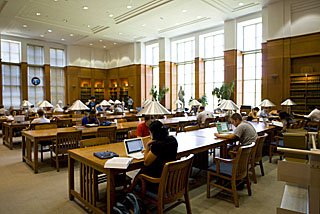 TLS: There has been a lot of concern among law students about inaccurate salary data provided by the schools. Tulane had only 37% of its 2007 graduate report income statistics. Would it be better to not even present this skewed data at all? Is the law school doing anything to combat this issue?
TLS: There has been a lot of concern among law students about inaccurate salary data provided by the schools. Tulane had only 37% of its 2007 graduate report income statistics. Would it be better to not even present this skewed data at all? Is the law school doing anything to combat this issue?
So long as a school explains what it is reporting, and so long as readers understand what they are seeing, it’s better to disclose than not to. What we prefer to do, however, is to provide information that gives a fuller picture. When a prospective student asks us questions about employment and salaries, we greatly prefer having a discussion that addresses all of the nuances of geography and type of employment. Generally speaking, statistics don’t provide a very full picture.
General Advice
TLS: Do you have any additional, general advice that you would like to offer applicants who are reading this interview before putting together applications for the Tulane University Law School?
Follow the instructions in the application materials, provide complete responses, make your personal statement “personal”. Don’t be tempted to send the exact same materials to every law school, because you will run the risk of letting your application sound generic. If you are genuinely interested in Tulane, tell us why—explain to us why you and Tulane are a good match for each other.
Interview with Edward Tom, Former Dean of Admissions U.C. Berkeley Boalt Hall School
Interview with Richard Geiger, Former Associate Dean and Dean of Admissions for Cornell Law School
Interview with Former Dean David E. Van Zandt of Northwestern University School of Law
Interview with Former Dean Robert Berring of Boalt Hall
Interview with Former Dean Sarah Zearfoss University of Michigan Law School
Interview with Professor Brian Leiter
Interview with Former Dean Victoria Ortiz UC Irvine School of Law
Interview with Former Dean Donald Polden of Santa Clara
Interview with Former Dean Jeanette Leach of Admissions to Santa Clara University's School of Law
Interview with Santa Clara Law School Former Assistant Dean Alexandra Horne
Interview with Former Dean Hasl of Thomas Jefferson School of Law
Interview with Joan Howland, Former Associate Dean at the University of Minnesota
Interview with Former Dean Evan Caminker of University of Michigan Law School
Interview with Former Dean Erwin Chemerinsky UC Irvine School of Law
Interview with Former Dean Jason Trujillo of UVA Law
Interview with Former Dean Stewart Schwab of Cornell Law School
Interview with Ann Perry of The University of Chicago Law School
Interview with Johann Lee at Northwestern University Law School
Interview with Kevin Johnson UC Davis Law
Interview with Former Dean Robert Rasmussen of USC Law
Interview with Dr. Karen Reagan Britton, UT Law
Interview with Dean Doug Blaze, UT Law
Interview with Jannell Roberts, Former Associate Dean of Admissions at Loyola Law
Interview with Susan L. Krinsky, Former Associate Dean of Admissions at Tulane Law
Interview with Faye Shealy, Former Associate Dean of Admissions at William & Mary Law School
Interview with Robert H. Jerry, II, Former Dean & Levin Mabie and Levin Professor of Law
Interview with Former Dean Earl Martin of Gonzaga Law
Interview with Stephen Brown, Associate Dean of Admissions at the Fordham University School of Law
Interview with Jacqlene Nance, Former Director of Admissions at the University of Kansas School of Law
Interview with Former Dean Robert Schwartz at UCLA School of Law
Interview with Matthew Diller, Former Dean and Professor of Law at Benjamin N. Cardozo School of Law
Interview with Andy Cornblatt, Dean of Admissions at Georgetown University Law Center (GULC)
Interview with Chris Guthrie, Dean of the Vanderbilt University Law School
Interview with G. Todd Morton, Assistant Dean and Dean of Admissions for Vanderbilt University Law School
Interview with Susan Lee, Former Director of Admissions at Gonzaga University School of Law
Interview with Arizona State University Sandra Day O’Connor College of Law Former Dean and Foundation Professor of Law – Paul Schiff Berman
Interview with Alissa Leonard, Director of Admissions and Financial Aid at the Boston University School of Law
Interview with David Partlett, Former Dean of Emory University School of Law
Interview with Michelle Rahman, Former Associate Dean for Admissions at the University of Richmond School of Law
Interview with Isabel DiSciullo, Former Assistant Dean of Admissions for Drexel Law
Published July 2010 Introduction Top-Law-Schools.com would like to thank Asha Rangappa, Associate Dean for Admissions at Yale Law School, for taking the time to answer our questions! TLS: Since becoming Associate Dean in 2007, you have reached out to th
Interview with Josh Rubenstein, Former Assistant Dean for Admissions at Harvard Law School
Interview with Renee C. Post at the University of Pennsylvania School of Law
Interview with Former Dean Rita C. Jones of Boston College Law School
Interview with S. Brett Twitty, Former Director of Admissions, W&L Law
Interview with Lillie V. Wiley-Upshaw, Vice Dean for Admissions and Financial Aid, University at Buffalo Law School
Interview with Nikki Laubenstein, Director of Admissions at Syracuse University College of Law
Interview with Janet Laybold, Former Associate Dean, Admissions, Career and Student Services, Washington University School of Law
Interview with Anthony Crowell, Former Dean of New York Law School
Interview with Jessica Berg and Michael Scharf, Former Co-Deans of Case Western Reserve University School of Law
Interview with Alyson Suter Alber, Associate Dean for Enrollment Planning and Strategic Initiatives, Case Western Reserve University School of Law
Interview with Jeffrey A. Dodge, Former Associate Dean of Students, Academic Affairs & Administration, University of Idaho College of Law
Interview with L. Pilar Mensah, Assistant Dean for Admissions; Sondra R. Tennessee, Associate Dean for Student Affairs; and Tiffany J. Tucker, Assistant Dean for Career Development, University of Houston Law Center
Interview with Jay L. Austin, Former Assistant Dean, Admissions and Student Financial Services, UC Irvine School of Law
Interview with Mathiew Le, Former Assistant Dean of Admissions & Financial Aid, University of Washington School of Law
Interview with Daniel M. Filler, Dean and Professor of Law, Drexel University, Thomas R. Kline School of Law
Interview with Donald Tobin, Dean and Professor of Law, the University of Maryland Francis King Carey School of Law
Interview with Amy Mangione, Assistant Dean and Director of Admissions, Albany Law School
Interview with Christopher J. Peters, Former Dean and Professor of Law, The University of Akron School of Law
Interview with Carla Pratt, Dean and Professor of Law, Washburn University School of Law
Interview with Michelle Rahman, Associate Dean for Admissions, the University of Richmond School of Law
Interview with Verna Williams, Interim Dean and Nippert Professor of Law, the University of Cincinnati College of Law
Interview with Allen Rostron, Former Associate Dean for Students and the William R. Jacques Constitutional Law Scholar and Professor of Law, University of Missouri-Kansas City School of Law
Interview with Faye Shealy, Former Associate Dean for Admission, William & Mary Law School
